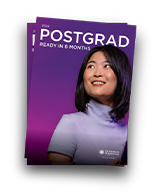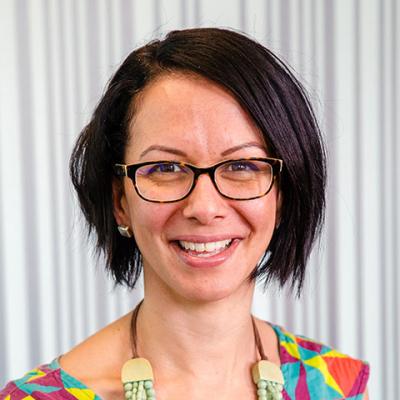
Graduate Diploma in Public Health
Overview
Study public health and prepare for a career making a difference to people by minimising preventable illness, disease, injury or death across the community and workplace.
Public health focuses on preventing disease, prolonging life and promoting healthy lifestyles. It offers a rewarding career that suits people from a variety of backgrounds including health, science, education and the social sciences. If you're curious, enjoy solving problems and have a desire to make a lasting impact on the health of communities and populations then a degree in public health may be for you.
The Graduate Diploma in Public Health is a one year program that is evidence-based and comprehensive, and reflects UQ's strong links with organisations such as Australian Aid, the World Bank, the World Health Organization, UNICEF and international ministries of health.
On completion, you may choose to progress to the Master of Public Health. Courses in the Graduate Diploma in Public Health are taken from the Master of Public Health course list, so you can transfer study credits across the programs.
Program highlights
- Enjoy a flexible program with a mixture of internal and external delivery, with all core courses offered internally and externally to support your study preference.
- Benefit from a program that is evidence-based and comprehensive, and reflects UQ's strong links with Australian and global health organisations.
- Choose to progress to the Master of Public Health and transfer study credits across the program, on completion.
How you'll learn
Your learning experiences are designed to best suit the learning outcomes of the courses you choose.
- Lectures
- Tutorials
- Online study
- Fieldwork
What you'll study
At UQ, degrees are called 'programs' and subjects are called 'courses'. Here's a sample of the courses you could study in this program:
- Introduction to Environmental Health
- Health Promotion in Public Health
- Introduction to Epidemiology
- Health Systems
Career possibilities
Postgraduate study can take you anywhere. Here are some of the careers you could be on your way to:
- Health promotion coordinator
- Public health nutritionist
- Aboriginal and Torres Strait Islander health worker
- Public health medical registrar
- Environmental health officer
- Research associate
- Digital health coordinator
- Epidemiologist
- Primary health manager
- Policy and research officer
Events
See all eventsStories
See all storiesUQ people
Meet the expert: exploring nutrition education with Dr Olivia Wright

UQ people
Meet the expert: instilling confidence in future physiotherapists with Dr Roma Forbes
Stories
See all storiesUQ people
Meet the expert: exploring nutrition education with Dr Olivia Wright

UQ people
Meet the expert: instilling confidence in future physiotherapists with Dr Roma Forbes
Entry requirements
Entry requirements
To be eligible for entry, you'll need:
- a bachelor's degree (or equivalent) in a relevant discipline (see below), or
- a graduate certificate (or equivalent) in a relevant discipline (see below)
You must have a grade point average (GPA) of 4.0 on a 7-point scale in your previous qualification.
- a bachelor's degree (or equivalent) in a relevant discipline (see below), or
- a graduate certificate (or equivalent) in a relevant discipline (see below)
You must have a grade point average (GPA) of 4.0 on a 7-point scale in your previous qualification.
Relevant disciplines for previous qualifications
Relevant disciplines include behavioural and social sciences, biomedical sciences, biostatistics, counselling, dentistry and oral health, development studies, environmental health, epidemiology, exercise and nutrition science, exercise and sport science, food science, health economics, health management, health sciences, medicine and medical sciences, nursing, nutrition, occupational health and safety, occupational therapy, pharmacy, physiotherapy, psychology, public health, science, sociology, speech therapy, and veterinary sciences.
Related programs
Depending on your previous qualifications and current goals, you might want to consider
one of these related programs:
English language requirements
IELTS overall 6.5; reading 6; writing 6; speaking 6; listening 6. For other English Language Proficiency Tests and Scores approved for UQ
TOEFL iBT (including Paper Edition) - Overall 87, listening 19, reading 19, writing 21 and speaking 19.
PTE Academic - Overall Score of 64 and 60 in all sub bands.
BE - A minimum overall grade of 4 plus a minimum grade of C in all macro skills.
CES - Overall 176 and 169 in all sub bands.
OET is not accepted.
There are other ways to meet the English language requirements. For some programs, additional conditions apply.
Student visas
International students who are accepted into full-time study in the Graduate Diploma in Public Health are eligible to apply for an Australian student visa (subclass 500).
There are a number of requirements you must satisfy before a visa is granted, including the Genuine Student (GS) requirement.
Fees and Scholarships
Indicative annual fee
Approximate yearly cost of tuition (16 units). Your fees will vary according to your selected courses and study load. Fees are reviewed each year and may increase.
$8,950
2024
$8,950
2024
Approximate yearly cost of full-time tuition (16 units). Your fees will vary according to your study load. Fees are reviewed each year and may increase.
AUD $44,960
2024
AUD $44,960
2024
Government assistance
Financial aid
As an international student, you might be eligible for financial aid – either from your home country, or from the Australian Government.
HECS-HELP
Domestic places in the Graduate Diploma in Public Health are Commonwealth Supported. This means the cost of your education is shared between you and the Australian Government.
Instead of tuition fees, Commonwealth Supported students pay what are called student contribution amounts.
HECS-HELP is an Australian Government loan scheme to assist eligible students with the cost of their student contribution amounts.
Centrelink support
The Australian Government offers a number of income-support payments to eligible Australian university students.
Scholarships
You may be eligible for more than 100 scholarships, including:
How to apply
Applying online
All international applications should be submitted to UQ. If you prefer, you can use an approved UQ agent in your country.
The program code for the Graduate Diploma in Public Health is 5131.
Find out more about applying for postgraduate coursework study
Applying online
All domestic applications should be submitted to UQ.
The program code for the Graduate Diploma in Public Health is 5131.
Find out more about applying for postgraduate coursework study
Important dates
The closing date for this program is:
- To commence study in semester 2 - May 31 of the year of commencement.
- To commence study in semester 1 - November 30 of the previous year.
To learn more about UQ dates, including semester start dates, view the Academic Calendar.
Important dates
The closing date for this program is:
- To commence study in Semester 1 - January 31 of the year of commencement.
- To commence study in Semester 2 - June 30 of the year of commencement.
- To commence study in summer - October 31 of the year of enrolment.
To learn more about UQ dates, including semester start dates, view the Academic Calendar.
Aboriginal and Torres Strait Islander applicants
For support with applying – or if you have any questions about university life – get in touch with our Aboriginal and Torres Strait Islander Studies Unit.
Explore other programs
Express yourself. And your interest.
They say choosing a degree is hard, which is why we've made it easy. Register your interest and we'll send you everything you need to know about applying to UQ.







